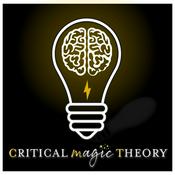In this Prof Responds episode, Professor Wamble reflects on listener responses to the “Best & Worst Teachers at Hogwarts” discussion and steps back to ask a larger question: What does it mean to teach in the shadow of war?
Drawing on Hogwarts faculty, Defense Against the Dark Arts, and Dumbledore’s leadership, this episode explores how education changes under sustained threat, how silence functions as pedagogy, and why students, especially marginalized ones, so often bear the cost of adult indecision. The conversation connects the magical world to the present political moment, examining the dangers of ignoring reality, the limits of preparing students without transparency, and the ethical responsibility educators carry when the world outside the classroom is already on fire.
This episode is invites us to reckon with power, authority, and the consequences of what schools choose to teach and what they refuse to name.



